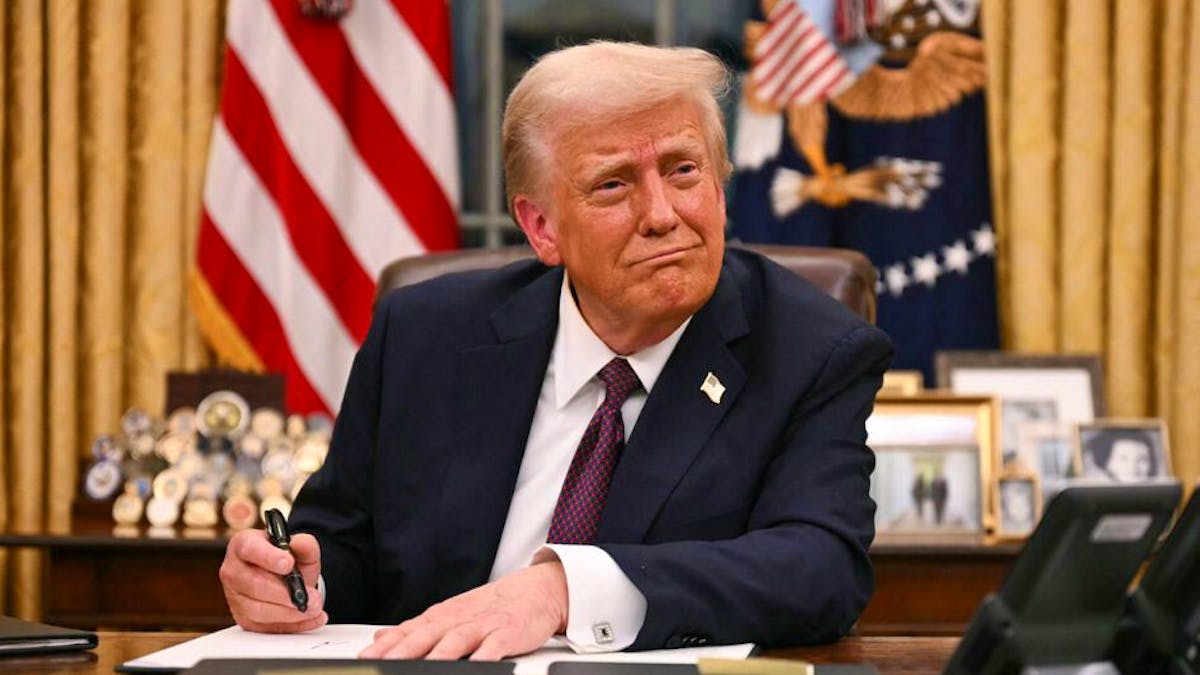The United States and China announced the suspension for 90 days of the major part of the prohibitive customs duties on Monday that they had imposed themselves, marking a de-escalation in their trade war which has shaken the global economy.
This suspension will take effect “by May 14,” announced the two largest global economic powers in a joint press release published after two days of negotiations in Geneva, scrutinized by the whole world.
Concretely, the two camps agree to suspend surcharges of 115 percentage points that they had imposed in recent weeks, as part of an escalation launched in April by a Donald Trump denouncing a commercial relationship unbalanced in favor of China.
These measures will therefore temporarily take customs duties on Chinese products imported by the United States to 30 %, and customs duties on American products imported by China at 10 %, during the continuation of negotiations between the two countries, explained the American representative to trade Jamieson Greer at a press conference in Geneva.
First concrete sign
If the truce announced on Monday is only valid for three months, it is a first concrete sign of appeasement in this trade war which had the financial markets pitch and fueled fears of inflation and economic slowdown in the United States as in China.
Proof of the relief of economic circles, the Hong Kong Stock Exchange jumped more than 3% in the minutes following the publication of the common press release. For its part, the dollar, which had suffered from the trade war, resumed compared to the yen and the euro.
“No camp wants a dissociation” of American and Chinese economies, told the American secretary to the Treasury, Scott Bessent on Monday in Geneva. But “we want a more balanced (relationship),” he added, believing that the customs barriers established in recent months had de facto put in place an “embargo” on the exchanges between the two countries.
“In the common interest of the world”
The reduction of these customs rights is “in the common interest of the world”, the Chinese Ministry of Commerce commented on Monday, welcoming “substantial progress” in trade negotiations with Washington.
The truce announced on Monday is the fruit of two days of negotiations in Geneva enters, on the American side, MM. Bessent and Greer, and, on the Chinese side, the Chinese Deputy Prime Minister He Lifeng.
The two countries “have an interest in having balanced trade, and this is what the United States will tend,” said Bessent, calling China to “open up more American goods”.
According to the common press release, the two countries are also agreed to “establish a mechanism to continue discussions on trade and economic relations”.
“The question of fentanyl”
Washington and Beijing will also “work constructively” on the question of fentanyl, a powerful synthetic opioid that wreaked havoc in the United States, said Greer.
Donald Trump has partly justified his customs duties against China by saying that he wanted to reduce the quantity of fentanyl arriving in the United States from this country.
The announcement made Monday “goes beyond what the markets expected,” notes Zhiwei Zhang, president and chief economist of Pinpoint Asset Management, who sees it as a “good starting point for the two countries to negotiate”.
“From the point of view of China, the result of these negotiations is a success, because China has adopted a position of firmness in the face of the American threat of high customs duties, and has managed to radically lower these customs duties without making concessions,” he adds.
If the truce constitutes “important progress”, “there is still efforts to be made to achieve a formal agreement” and the situation “could deteriorate”, warns Daniela Sabin Hathorn, Capital.com analyst.
The negotiations were held in camera in the residence of the Swiss representative with the United Nations, a opulent villa nestled on the left bank of Lake Geneva.
The meeting in Geneva took place two days after Donald Trump unveiled a trade agreement with the United Kingdom, the first concluded since he imposed more or less prohibitive customs duties on all countries.

